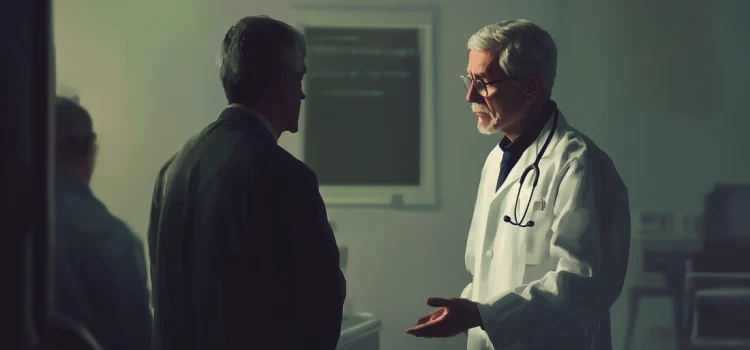
What happens when a doctor’s professional judgment clashes with a patient’s personal beliefs? How do healthcare providers maintain ethical standards?
Ethical dilemmas in healthcare form the backbone of Adam Kay’s memoir This Is Going to Hurt. These challenges range from respecting religious beliefs during medical procedures to managing aggressive patient behaviors.
Keep reading to discover real-world examples of how healthcare providers navigate these delicate situations.
Navigating Medical Ethics and Patient Care
Ethical dilemmas in healthcare arise frequently, creating complex situations that require careful consideration. From respecting patient autonomy to maintaining professional standards, these challenges test both clinical judgment and moral compass. This article delves into the intricate ethical challenges that physicians encounter, examining how to balance medical responsibilities with personal convictions.
Balancing Patient Choice and Medical Guidance
Empowering patients to make their own healthcare decisions is crucial, while still providing expert medical guidance. For instance, when patients express interest in home births, it’s important to acknowledge their desire for a peaceful experience while honestly discussing potential risks. Providing clear, step-by-step information helps patients feel more confident when faced with multiple treatment options.
Managing Challenging Patient Interactions
Healthcare professionals sometimes face unreasonable demands or aggressive behavior from patients. In one instance, a patient questioned the quality of care and threw a medical waste bin. Another threatened violence over procedure scheduling delays. These situations require careful de-escalation while maintaining professional boundaries and ensuring quality care continues.
Cultural and Religious Considerations
Working in healthcare means encountering diverse cultural and religious beliefs that influence medical decisions. This became evident when a patient insisted on having only a female doctor for his wife’s cesarean section, despite limited staff availability. Another situation involved accommodating a British-Chinese couple’s wish to schedule their child’s birth on an auspicious date, highlighting the need to balance cultural sensitivity with medical necessity.
Reconciling Medical Procedures With Personal Beliefs
Historical practices, such as administering blood transfusions to Jehovah’s Witnesses without consent, demonstrate the evolution of medical ethics. Modern healthcare requires finding ways to honor patient preferences while maintaining medical best practices. This was exemplified when implementing natural birthing elements into surgical deliveries, despite initial skepticism from medical staff.
Each situation requires carefully weighing optimal medical care against individual autonomy and beliefs while navigating complex ethical considerations. Success lies in finding a balance between these often competing priorities.






